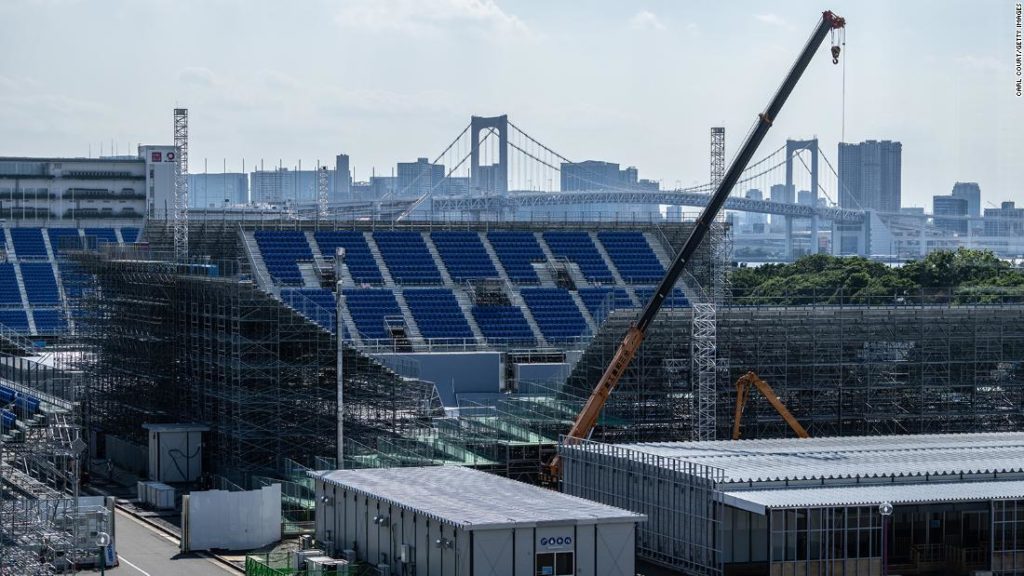About 10,000 of the 80,000 registered volunteers supporting athletic events had quit as of Wednesday, according to Tokyo 2020 Organizing Committee officials.
Volunteers are an instrumental part of the Summer Olympics. They help staff operate Olympic facilities and venues, and assist spectators and athletes. So if more continue to drop out, it could pose additional difficulties for organizers.
However, no foreign spectators are allowed into Japan for the Games, so organizers may not need as many volunteers as other host cities have in years past.
The country has reported more than 752,000 total coronavirus cases and more than 13,200 deaths, according to Johns Hopkins University. Daily new cases have been in the low thousands in recent days, declining from a fourth-wave peak of nearly 8,000 on April 29.
Japan’s vaccine rollout has also gone much slower than expected. While there is enough supply to vaccinate much of the country’s 126 million people, there is a bottleneck of medical professionals available to administer them. Only nurses, doctors and dentists can legally give vaccines.
Currently, just the elderly and medical professionals are eligible to receive a vaccine. Muto, the CEO of the Olympic Organizing Committee, said doses of the Pfizer-BioNTech vaccine will be provided to Olympic athletes, but not to volunteers, who are being asked to use public transportation to commute to the Games. Olympic Minister Tamayo Marukawa said the IOC would give Japan 20,000 vaccines, but negotiations for who receives those doses are ongoing.
“We believe the IOC’s determination to proceed with the Olympic Games is not informed by the best scientific evidence,” the authors wrote in the New England Journal of Medicine. “For us to connect safely, we believe urgent action is needed for these Olympic Games to proceed.”
A handful of prominent business leaders have also voiced concerns about the event. Last month, the CEO of e-commerce giant Rakuten, Hiroshi Mikitani, told CNN it would be a “suicide mission” for Japan to host the games.
Also in May, the Tokyo Medical Practitioners Association, an organization of about 6,000 doctors in the capital, wrote a letter calling for the Games to be scrapped.
Japanese authorities recently extended a state of emergency for much of the country, including Tokyo, until June 20 — about a month before the Olympics are set to begin.
Several officials have said it would be impossible to postpone the Games a second time.
“All the stadiums are booked for other events already. It has been such hard work to postpone by one year … it is impossible to postpone it again,” Tokyo 2020 President Seiko Hashimoto told Nikkan Sports, a Japanese newspaper, in an interview published Thursday.
Dick Pound, the longest-serving IOC member, told CNN this week that “none of the folks involved in the planning and the execution of the Games is considering a cancellation.”
“That’s essentially off the table,” he said.
CNN’s Emiko Jozuka, Junko Ogura and Blake Essig contributed to this report.
You may also like
-
Afghanistan: Civilian casualties hit record high amid US withdrawal, UN says
-
How Taiwan is trying to defend against a cyber ‘World War III’
-
Pandemic travel news this week: Quarantine escapes and airplane disguises
-
Why would anyone trust Brexit Britain again?
-
Black fungus: A second crisis is killing survivors of India’s worst Covid wave

